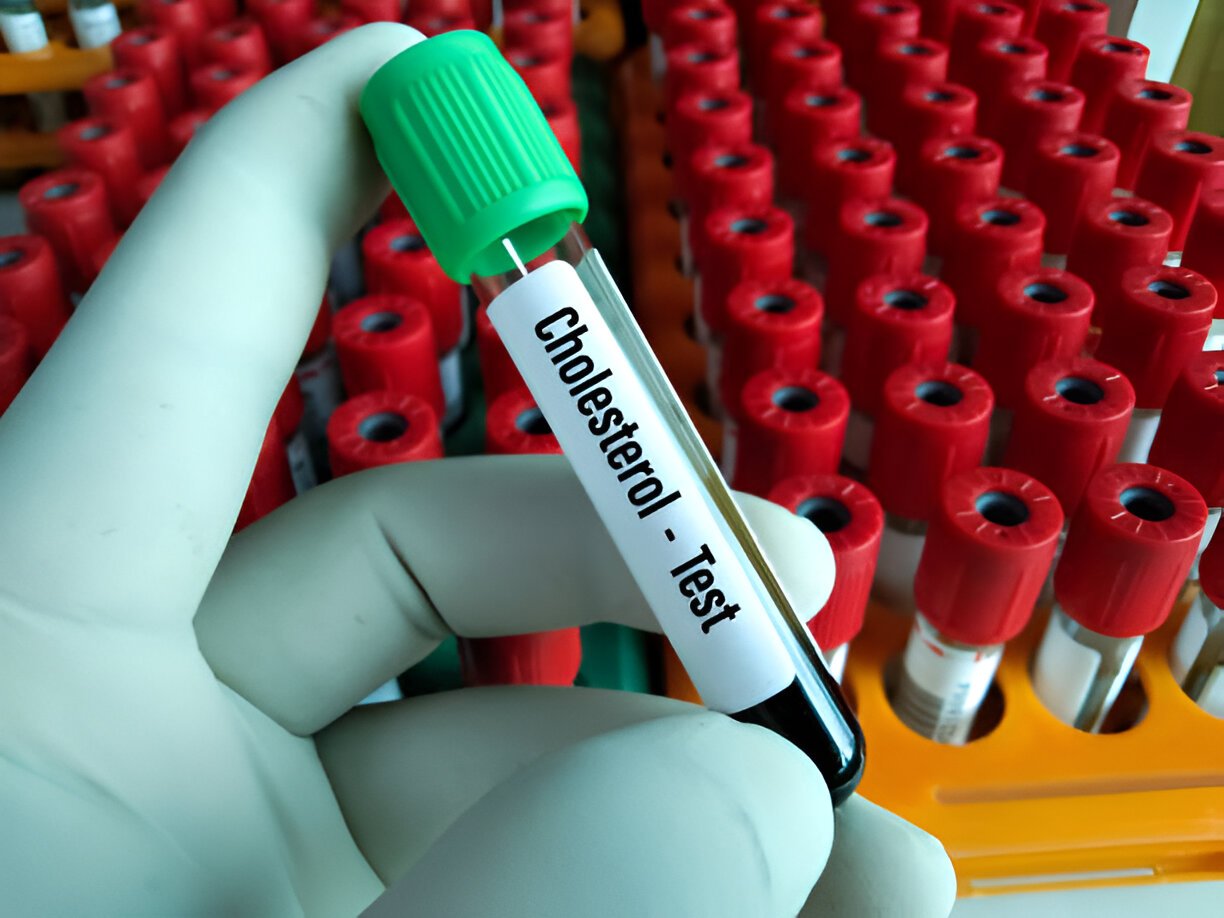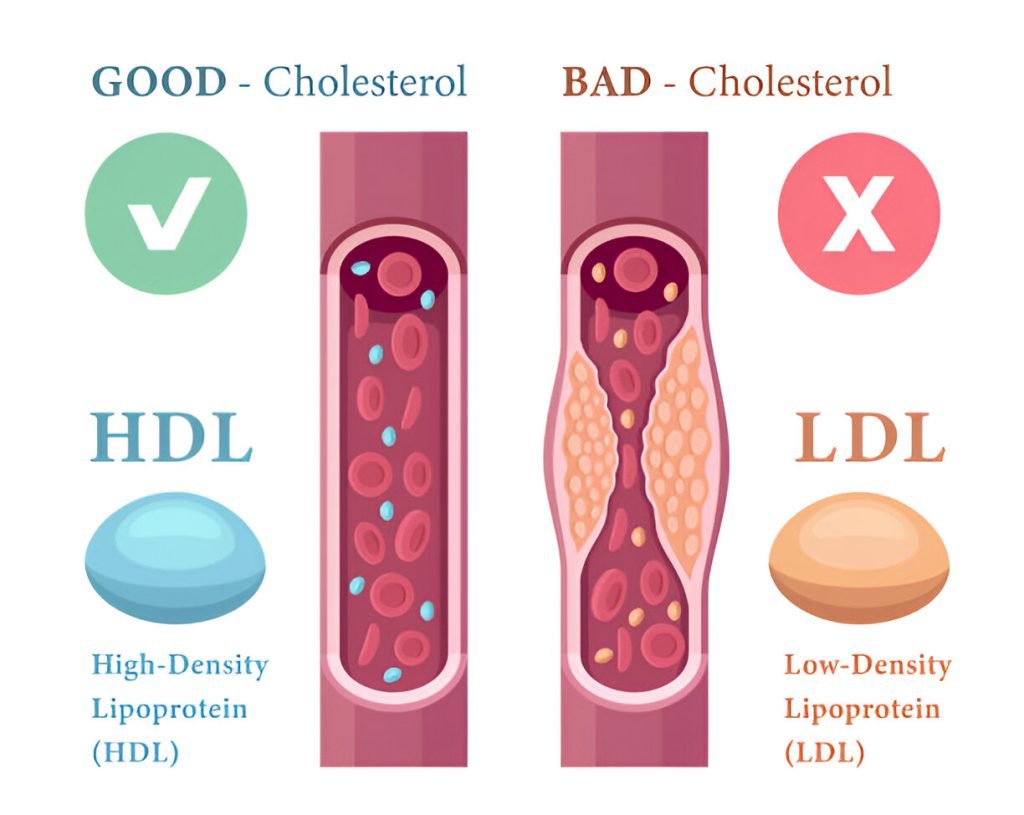Expert Advice

Cholesterol often finds itself at the centre of debates about heart health, leading to confusion and misconceptions. At Atrius Cardiac Care, we believe that understanding cholesterol is crucial for making informed health decisions. In this blog, we will debunk common myths about cholesterol, clarify the facts, and provide practical tips for managing cholesterol levels effectively.
The landscape of cholesterol is filled with myths that can mislead individuals about their health. Let’s explore some of the most prevalent misconceptions and uncover the truth behind them.
One of the most pervasive myths is that all cholesterol is harmful. In reality, cholesterol is a waxy substance that is essential for various bodily functions. It is crucial for the production of hormones, vitamin D, and bile acids that help digest fat. Cholesterol is carried in the bloodstream by lipoproteins, which are categorised into two main types: low-density lipoprotein (LDL) and high-density lipoprotein (HDL).
LDL cholesterol is often referred to as bad cholesterol because high levels can lead to plaque buildup in arteries, increasing the risk of heart disease.
HDL cholesterol, on the other hand, is known as good cholesterol because it helps remove LDL cholesterol from the bloodstream.
Not all cholesterol is created equal. Understanding the difference between good and bad cholesterol is key to maintaining heart health.

Another common belief is that eating eggs significantly raises cholesterol levels. While eggs do contain dietary cholesterol, research has shown that for most people, dietary cholesterol has a minimal impact on blood cholesterol levels. In fact, eggs can be part of a healthy diet, providing essential nutrients and protein.
In moderation, eggs can be included in a cholesterol diet without significant risk.
Many people believe that cholesterol issues are only a concern for older adults. However, high cholesterol can affect individuals of all ages. Factors such as genetics, diet, and lifestyle choices play significant roles in cholesterol levels.
High cholesterol can develop early in life, making regular checkups essential for everyone, regardless of age.
While diet plays a critical role in managing cholesterol levels, it is not the only factor. A comprehensive approach that includes exercise, weight management, and, when necessary, medication is essential for effective cholesterol control.
Understanding the facts about cholesterol is crucial for maintaining heart health. Here are some important truths to consider:
Cholesterol levels can significantly impact heart health. High levels of LDL cholesterol can lead to the formation of plaques in the arteries, narrowing them and restricting blood flow. This condition, known as atherosclerosis, can increase the risk of heart attacks and strokes.
Conversely, HDL cholesterol helps protect against heart disease by transporting LDL cholesterol away from the arteries and back to the liver, where it can be processed and removed from the body.
Understanding what constitutes normal cholesterol levels is vital. According to health guidelines, the following levels are generally considered optimal for adults:
Normal cholesterol levels for women may vary slightly, but the general guidelines remain similar.
Many people are unaware that high cholesterol often has no symptoms. This is why regular cholesterol checks are crucial. Individuals may not realise they have high cholesterol until they experience serious health issues.
Regular cholesterol check ups can help catch high cholesterol early, allowing for timely intervention.
-Dr (Col) Manjinder Singh Sandhu, Principal Director of Cardiology at Atrius
Managing cholesterol effectively involves a multifaceted approach that includes diet, exercise, and regular checkups. Here are some practical tips to help you maintain healthy cholesterol levels:
A heart-healthy diet is essential for managing cholesterol. Focus on incorporating good cholesterol foods into your meals, such as:
Regular physical activity can help raise HDL cholesterol levels while lowering LDL cholesterol. Aim for at least 150 minutes of moderate-intensity aerobic exercise each week, such as brisk walking, cycling, or swimming.
Exercise is a powerful tool in cholesterol management. It not only improves heart health but also enhances overall well-being.
-Dr Sanjat Chiwane, Director of Cardiology at Atrius
In some cases, lifestyle changes alone may not be sufficient to manage high cholesterol. If your cholesterol levels remain high despite dietary and exercise efforts, your healthcare provider may recommend high-cholesterol medication. Statins are commonly prescribed to help lower LDL cholesterol levels.
Regular cholesterol checkups are essential for monitoring your levels and assessing your risk for heart disease. The frequency of cholesterol checks may vary based on your age, risk factors, and family history.
Knowing how to check cholesterol levels and understanding when to check cholesterol is vital for maintaining heart health.
-Dr Hemant Gandhi, Associate Director of Cardiology at Atrius
At Atrius Cardiac Care, the best heart hospital in India, we recommend the following tips for a cholesterol-friendly diet:
Finding ways to incorporate exercise into your daily routine can be beneficial. Here are some strategies:
Stress can negatively impact cholesterol levels and overall heart health. Consider incorporating stress management techniques into your routine, such as:
Regular checkups and screenings are vital for maintaining heart health. At Atrius Cardiac Care, we prioritise comprehensive evaluations to assess your cholesterol levels and overall cardiovascular health. Our team of experts is dedicated to providing personalised care and support to help you achieve your health goals.
At Atrius, we believe in empowering our patients with the knowledge and resources they need for a healthy heart.
-Dr (Col) Manjinder Singh Sandhu, Principal Director of Cardiology at Atrius
Understanding cholesterol is essential for making informed health decisions. By debunking common cholesterol myths and embracing the facts, individuals can take proactive steps toward managing their cholesterol levels effectively.
If you have questions about your cholesterol levels or need guidance on how to manage them, contact Atrius Cardiac Care today. Our expert team is here to help you navigate your health journey and achieve a healthier heart. Together, we can develop a personalised plan that meets your needs and supports your overall well-being.
